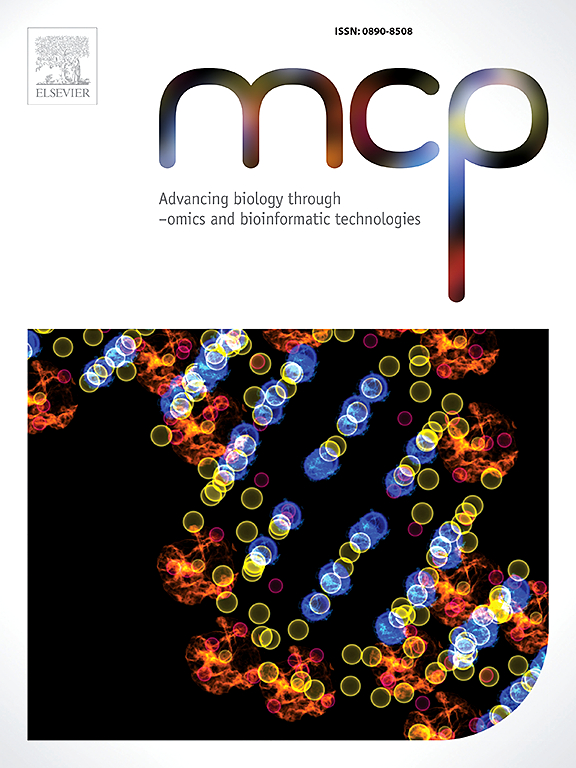Gastrodin promotes osteogenic differentiation by stimulating the Wnt/β-catenin signaling pathway
IF 3
3区 生物学
Q3 BIOCHEMICAL RESEARCH METHODS
引用次数: 0
Abstract
Background
Osteoporosis is a common disease that can lead to fracture as well as various skeletal symptoms and is a global health problem. Traditional Chinese medicine (TCM) may offer novel approaches for treating osteoporosis. Our study aimed to investigate the osteogenic potential and underlying mechanisms of gastrodin in promoting osteogenic differentiation.
Methods
By combining network pharmacology and bioinformatics, we conducted experiments to inspect cell viability, Alkaline Phosphatase (ALP) viability, and Alizarin red staining (ARS) and investigate the expression profiles of genes and proteins relevant to osteogenesis, including β-catenin, Runt-related transcription factor 2 (Runx2), Low Density Lipoprotein Receptor-Related Protein 5 (LRP5) and Glycogen synthase kinase-3 beta (GSK-3β). Statistical analysis was used for validation.
Results
Network pharmacology and bioinformatics analyses revealed that gastrodin might influence osteogenic differentiation. The experimental results revealed that gastrodin had no toxic effects and was able to promote ALP activity and stimulate osteogenic differentiation of Mouse Calvaria-derived Osteoblastic Cell Line.
(MC3T3-E1) cells. Subsequent network pharmacology and bioinformatics studies revealed that gastrodin might affect osteogenic differentiation through the Wnt/β-catenin signaling pathway. The results revealed that gastrodin influenced osteogenic differentiation genes and protein expression, including the upregulation of β-catenin, Runx2, and LRP5 and the downregulation of GSK-3β, and Dickkopf-1 (DKK-1) inhibited its promotion.
Conclusion
Gastrodin enhances the Wingless (Wnt)/β-catenin signaling pathway by increasing β-catenin accumulation and nuclear migration as well as decreasing GSK-3β, which increases Runx2 expression, consequently encouraging MC3T3-E1 cell osteogenic differentiation, and may be applied as a potential drug for osteoporosis therapy and prevention.
天麻素通过刺激Wnt/β-catenin信号通路促进成骨分化。
背景:骨质疏松症是一种常见疾病,可导致骨折和各种骨骼症状,是一个全球性的健康问题。中医药可能为治疗骨质疏松症提供新的途径。本研究旨在探讨天麻素促进成骨分化的潜能及其机制。方法:采用网络药理学和生物信息学相结合的方法,检测细胞活力、碱性磷酸酶(ALP)活力和茜素红染色(ARS),研究成骨相关基因和蛋白的表达谱,包括β-catenin、runt相关转录因子2 (Runx2)、低密度脂蛋白受体相关蛋白5 (LRP5)和糖原合成酶激酶3β (GSK-3β)。采用统计分析进行验证。结果:网络药理学和生物信息学分析显示天麻素可能影响成骨分化。实验结果表明天麻素对小鼠骨源性成骨细胞系(MC3T3-E1)细胞无毒性作用,且能促进ALP活性,促进成骨分化。随后的网络药理学和生物信息学研究表明天麻素可能通过Wnt/β-catenin信号通路影响成骨分化。结果显示天麻素影响成骨分化基因及蛋白表达,包括β-catenin、Runx2、LRP5上调,GSK-3β下调,Dickkopf-1 (DKK-1)抑制其促进作用。结论:天麻素通过增加β-catenin的积累和核迁移,降低GSK-3β,增加Runx2的表达,从而促进MC3T3-E1细胞成骨分化,从而增强Wnt /β-catenin信号通路,可能成为治疗和预防骨质疏松症的潜在药物。
本文章由计算机程序翻译,如有差异,请以英文原文为准。
求助全文
约1分钟内获得全文
求助全文
来源期刊

Molecular and Cellular Probes
生物-生化研究方法
CiteScore
6.80
自引率
0.00%
发文量
52
审稿时长
16 days
期刊介绍:
MCP - Advancing biology through–omics and bioinformatic technologies wants to capture outcomes from the current revolution in molecular technologies and sciences. The journal has broadened its scope and embraces any high quality research papers, reviews and opinions in areas including, but not limited to, molecular biology, cell biology, biochemistry, immunology, physiology, epidemiology, ecology, virology, microbiology, parasitology, genetics, evolutionary biology, genomics (including metagenomics), bioinformatics, proteomics, metabolomics, glycomics, and lipidomics. Submissions with a technology-driven focus on understanding normal biological or disease processes as well as conceptual advances and paradigm shifts are particularly encouraged. The Editors welcome fundamental or applied research areas; pre-submission enquiries about advanced draft manuscripts are welcomed. Top quality research and manuscripts will be fast-tracked.
 求助内容:
求助内容: 应助结果提醒方式:
应助结果提醒方式:


